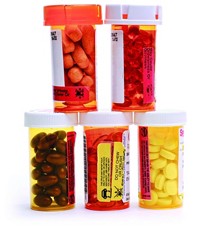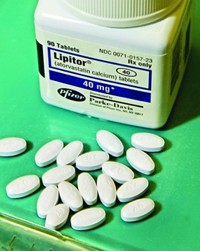Advertisement
Grab your lab coat. Let's get started
Welcome!
Welcome!
Create an account below to get 6 C&EN articles per month, receive newsletters and more - all free.
It seems this is your first time logging in online. Please enter the following information to continue.
As an ACS member you automatically get access to this site. All we need is few more details to create your reading experience.
Not you? Sign in with a different account.
Not you? Sign in with a different account.
ERROR 1
ERROR 1
ERROR 2
ERROR 2
ERROR 2
ERROR 2
ERROR 2
Password and Confirm password must match.
If you have an ACS member number, please enter it here so we can link this account to your membership. (optional)
ERROR 2
ACS values your privacy. By submitting your information, you are gaining access to C&EN and subscribing to our weekly newsletter. We use the information you provide to make your reading experience better, and we will never sell your data to third party members.
Safety
Pay For Delay
Deals that slow the availability of generics pit administration against drugmakers
by Glenn Hess
June 8, 2009
| A version of this story appeared in
Volume 87, Issue 23
As part of its effort to slash health care costs, the Obama Administration is urging Congress to stop brand-name pharmaceutical companies from paying their generics rivals to keep lower priced equivalent medicines off the market.
The antitrust arm of the Federal Trade Commission (FTC) has been battling these agreements, saying they enable drugmakers to preserve their monopolies on certain products and cost consumers hundreds of millions of dollars in higher prescription prices.
“The enormous costs that result from unwarranted delays in generic entry burden consumers, employers, state and local governments, and federal programs already struggling to contain spiraling costs,” FTC Commissioner J. Thomas Rosch told the House Energy & Commerce Subcommittee on Commerce, Trade & Consumer Protection at a recent hearing.
Congressional action to prohibit these “pay for delay” agreements between brand manufacturers and their generics competitors is “both appropriate and timely,” Rosch said. “Agreements to eliminate potential competition and share the resulting profits are at the core of what the antitrust laws proscribe, and for that reason these pay-for-delay settlements should be prohibited.”
He also noted that President Barack Obama’s fiscal 2010 budget proposal “expresses the Administration’s opposition to these anticompetitive deals.” Among other health care goals, Obama has pledged to reduce the cost of medical care, including prescription drugs. Generic medications typically cost 30 to 60% less than their brand-name counterparts.
The Administration is backing legislation (H.R. 1706) introduced in March by Rep. Bobby L. Rush (D-Ill.) that would bar settlements of litigation in which the brand-name drug company pays its potential generics competitor to abandon a patent challenge and delay entering the market with a less expensive product.
A similar bill has been introduced by Sen. Herb Kohl (D-Wis.), chairman of the Senate Judiciary Antitrust, Competition Policy & Consumer Rights Subcommittee. His measure (S. 369) would make it “unlawful” for a settlement between a drug patent holder and a generics challenger to “include an exchange of anything of value.”
At least nine brand-name drugs with collective annual U.S. sales of about $16 billion are currently protected by such agreements, says C. Scott Hemphill, an associate professor at Columbia Law School who has advised FTC on antitrust issues raised by the settlement of pharmaceutical patent disputes.
Also known as “reverse payments,” the deals stem from provisions of a 1984 law called the Hatch-Waxman Act that give generics companies a way to challenge weak or questionable patents on brand drugs. As an incentive to bring more generic drugs to market, the law grants a huge windfall—180 days of market exclusivity—to the first generics applicant that successfully challenges the scope or validity of a brand manufacturer’s patent.
Under Hatch-Waxman, a company can seek approval from the Food & Drug Administration to market a generic product before the patent covering the brand-name drug expires by asserting in its application that it believes the patent is either invalid or narrow enough to be designed around. Facing the loss of millions of dollars per day in sales once generics competitors enter the market, brand companies usually respond by filing an infringement lawsuit.
It has become common for these patent challenges to be resolved with a settlement under which the generics manufacturer agrees to refrain from introducing its product for a number of years in exchange for a payment by the brand company. Since 2001, FTC has filed a half-dozen lawsuits challenging the agreements, arguing that they undermine the intent of the Hatch-Waxman Act, which was meant to speed consumer access to generic drugs.
At the House hearing, Rosch said the 1984 law has helped control the costs of prescription drugs by ensuring that weak patents do not delay lower cost generics competition. These pay-for-delay “deals, which are unique to the pharmaceutical industry, threaten to extinguish that benefit,” he declared.
In its latest enforcement effort, FTC sued three drugmakers in February, charging that Solvay Pharmaceuticals, the maker of the testosterone drug AndroGel, entered into an illegal profit-sharing agreement with Watson Pharmaceuticals and Par Pharmaceutical to delay the launch of a generics competitor for nine years.
But to date, FTC has had limited success in suits against the industry. Several federal district courts have stated that reverse-payment settlements fall within the scope of a patent holder’s rights. They have ruled that because a patent is a right to exclude competition, the patent holder has the right to strike a deal, provided it doesn’t extend the monopoly beyond the patent’s term.
In 2005, two federal appellate courts upheld the legality of agreements reached by Schering-Plough and AstraZeneca with generics companies. Since then, “it has become increasingly difficult to bring antitrust cases to stop pay-for-delay settlements, and such settlements have become a common industry strategy,” Rosch told the subcommittee.
In its most recent analysis, FTC found that 42% of all final patent settlements between brand-name and generic drugmakers in fiscal 2006 and 2007 included both compensation to the generics company and a restriction on the company’s ability to market its product.
The implications are troubling, Rosch said, because the profitability of delaying generics entry means that these agreements will become more prevalent, with consumers paying higher prices as a result.
“It will typically be more profitable for both parties if the brand-name manufacturer pays the generic manufacturer an amount less than the brand-name manufacturer would have lost and more than the generic would have gained to settle the patent dispute, and the latter agrees to defer entry,” Rosch explained. “By eliminating the potential for competition, the parties can share the consumer savings that would result if they were to compete. In other words, these settlements are harmful because the parties are resolving their dispute at the expense of consumers.”
The FTC official urged lawmakers not to wait for the Supreme Court to review any of the “erroneous judicial decisions” that have allowed reverse-payment settlements. “There’s no reason to think that the court will set things straight anytime soon,” Rosch said. H.R. 1706, he added, “offers a straightforward means to quickly combat anticompetitive conduct that is pervasive and costly to consumers” while still allowing legitimate settlements.
Among the supporters of the Rush and Kohl bills is AARP, the powerful senior citizens lobby. “Lowering prescription drug prices will be a critical part of comprehensive health reform,” AARP board member Joanne Handy says. “Consumers lose when drugmakers are able to delay competition by paying off generic manufacturers.”
But brand-name drug companies defend the settlements as a way to reduce costly litigation. Diane E. Bieri, executive vice president and general counsel of the Pharmaceutical Research & Manufacturers of America, an industry trade group, told the House subcommittee that it’s common for a patent dispute to last several years. “Settlements allow both litigants and the court system to conserve resources that can then be put to more efficient use, including, in the case of the innovator companies, further investment in developing new treatments,” she said.
A ban on nearly all settlements in which the brand company gives something of value to the generic drugmaker would also increase uncertainty over the scope and duration of patent protection, Bieri testified. Faced with this increased uncertainty, brand-name drug companies “likely will be less willing to make the astronomical investments necessary for developing and testing novel pharmaceuticals.”
Sweeping limits on settlements will also increase the possibility of a court ruling of infringement, she added, which could negatively affect the development of new generic drugs. “An infringement ruling prevents a generic from making any sales until patent expiration and delays its ability to recoup its investment in developing the product,” Bieri noted.
Patent settlements between brand-name and generic drug companies can benefit consumers by bringing affordable medicines to market sooner, says Kathleen Jaeger, president of the Generic Pharmaceutical Association (GPhA). “The generic pharmaceutical industry has consistently argued that patent litigation settlements between brand and generic pharmaceutical companies are proconsumer and procompetitive and have generated billions of dollars in savings for consumers,” she remarks.
Legislation limiting the options available to settle patent challenges, including elimination of payments to the generics challenger, “would have the unintended result of blocking settlements that get affordable medicines to consumers sooner than otherwise would have been possible,” according to Jaeger.
"It has become increasingly difficult to bring antitrust cases to stop pay-for-delay settlements."
The settlements still allow generics manufacturers to introduce cheaper drugs before patents expire on their brand counterparts, GPhA says. “Experience has shown that settlements repeatedly have resulted in early generic market entry, which has led to significant cost savings for consumers,” Jaeger states.
The group also argues that a sweeping ban is unnecessary because FTC and the Department of Justice already have the authority to review and evaluate patent settlement agreements to ensure that they are not harmful to competition.
“It is our position that this case-by-case review ensures that proconsumer settlements are not blocked, that appropriate action is taken to ensure that settlements are not anticompetitive or anticonsumer, and that the incentive for generic companies to challenge suspect brand pharmaceutical patents remains in place,” Jaeger says.
At the House hearing, Rush asserted that banning reverse payments in patent settlements would save businesses and consumers “billions of dollars” in health care costs. “That is the ultimate purpose of this bill,” he said.
“Congress is currently considering ways to save money as a means to provide affordable health insurance to all Americans. I believe H.R. 1706 can play an important role in reducing prescription drug costs in our economy,” Rush remarked. “We cannot afford to do nothing on these uncompetitive settlements. They are denying consumers the considerable savings they should otherwise receive from generic competition.”









Join the conversation
Contact the reporter
Submit a Letter to the Editor for publication
Engage with us on Twitter